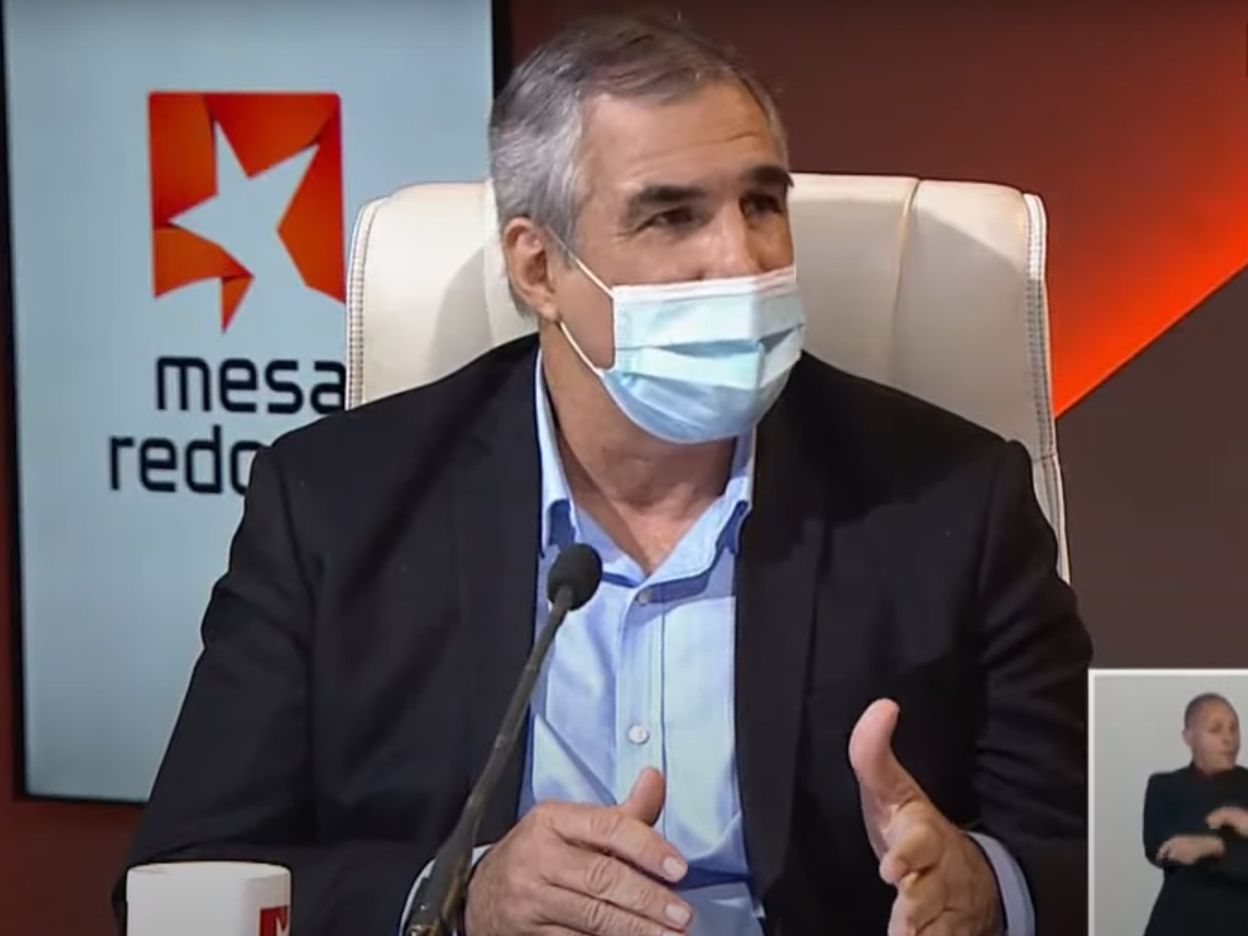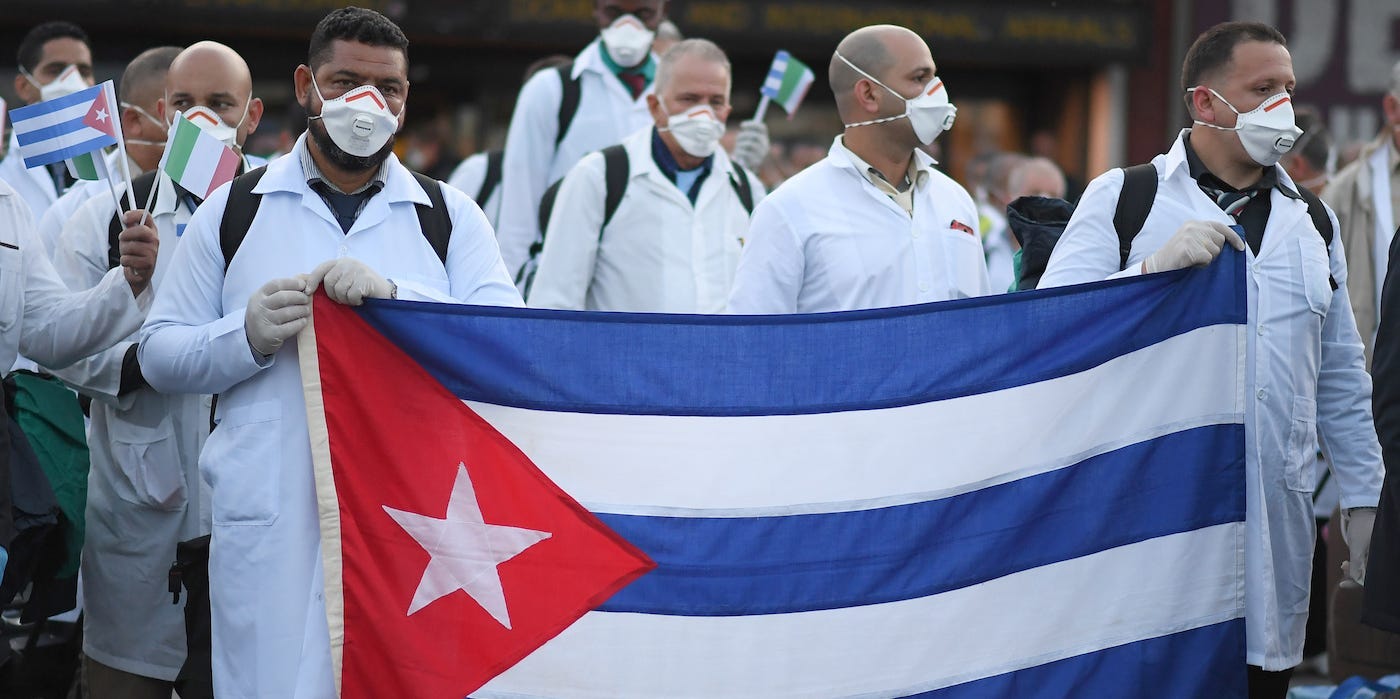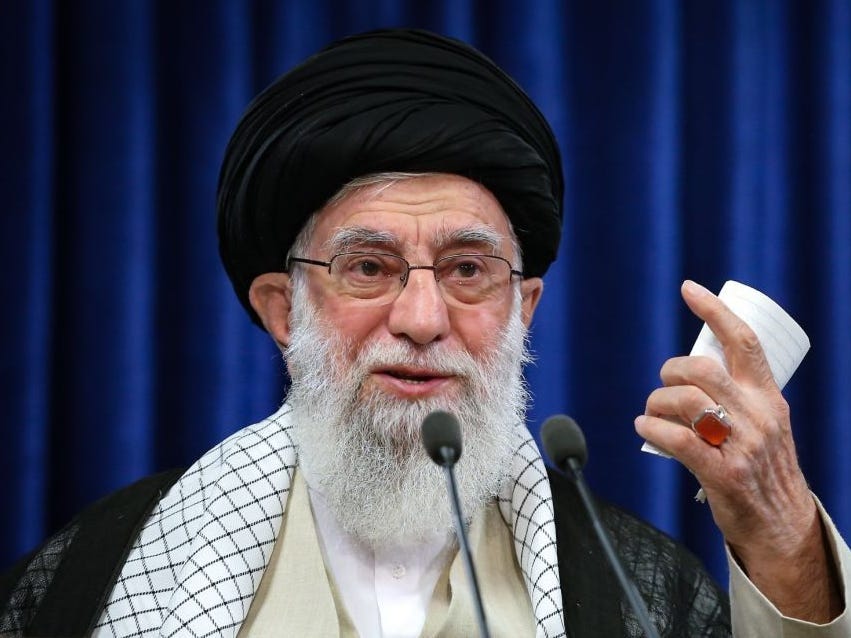
YAMIL LAGE / Contributor/ Getty Images
- Cuba is developing a vaccine, Soberana 02, which could be used to vaccinate its population.
- Three others are also in the works. Cuba has a history of effective campaigns without Western help.
- Several anti-capitalist countries have expressed interest in receiving the vaccine.
- Visit the Business section of Insider for more stories.
A vaccine developed by the Cuban government is touted to enter Phase 3 trials in March, raising the prospect of the small, communist nation overseeing a homegrown vaccine drive.
The vaccine, Soberana 2, has yet to be formally approved. But Cuba is betting big on its success, which builds on a history of medical programs where the nation has acted alone.
The country aims to be one of the first in the world to vaccinate its entire population of 11 million by the end of 2021, though it will start significantly behind others countries which are already giving out jabs.
100 million doses of Soberana 02 could be produced by the country for domestic use and export by the end of the year, officials there say.
The country is developing four vaccines in parallel. The Finlay Institute of Vaccines is leading on Soberano 02, and also Soberano 01, which is not as far through the process.
Two more, Abdala and Mambisa, are being developed by the Centro de Ingeniería Genética y Biotecnología.
Mambisa, which is still very early in the phases of testing, is an intranasal treatment, which means it would be delivered through the nose rather than by a needle.
Both the institutes are funded and operated by the Cuban government.
A promising program - but little public data
"The Finlay Institute is a leading biopharma institution in Cuba", Professor Beate Kampmann, director of the Vaccine Centre at the London School of Hygiene and Tropical Medicine, told Insider in an interview.
"This is a solid enterprise that is [already] making the vaccines for a lot of Latin America, including tetanus and other conjugated vaccines."
If Soberana 02 is proven to be effective in Phase 3 clinical trials, it will be the first vaccine against COVID-19 to be developed in Latin America.
Phase 3 is the final stage before a vaccine is generally approved by national regulators.
A Phase 1 trial of a vaccine is limited to a dozen or so people, to show it is safe. Phase 2 often involves more than 100 people, and measures side-effects and how the broad immune system reacts.
The Phase 3 is typically the real test of whether the vaccine works, and involves several hundred volunteers. Its goal is to measure how effective the vaccine is compared to a control group.
The Pfizer, Moderna, and AstraZeneca vaccines all passed Phase 3 before widespread use. For the WHO to approve the vaccines for emergency use, Cuba will need to show they has at least 50% efficacy.
Safety and immunogenicity data from the Phase 1 and 2 trial results have not been published yet, which makes it difficult for external experts to judge whether they work. Past performance is helpful indicator, but no guarantee of success.
Experimental COVID-19 vaccines can fall at the first hurdle. Pharma giants Merck and Sanofi gave up on vaccine candidates after early trials didn't pan out.
Cuban scientists told Mesa Redonda, a popular Cuban television program, that the vaccines are "working well".

YouTube/Mesa Redonda
The scientists said they were using tried and tested vaccine platforms, developed by Cuba's biotech industry.
Soberana 02 is a conjugate vaccine, a type of vaccine which carries the portion of the spike protein which binds to human cells. On its own, this bit of protein will not trigger a strong immune response, so the vaccine is tied to ("conjugated with") another substance to boost its effectiveness.
In animals, the vaccine triggered a strong neutralising response, according to data which has not yet been reviewed by other scientists.
Kampmann said that, according to available data, the vaccine's Phase 1 trials, which began in October, have just finished recruiting. The Phase 2 was initiated on December 21, 2020, and is scheduled to recruit 910 participants over the course of a year.
In a tweet on January 5, however, the Finlay vaccine institute said that 700 participants had already received the first dose of the Phase 2 trial of Soberana 02 and that it expects a Phase 3 trial in March.
When the trial starts, the vaccine is due to be given to 42,000 Cubans, with the aim of being extended to the rest of the population at a later date, the tweet said.
—Instituto Finlay de Vacunas (@FinlayInstituto) February 5, 2021
On the design of the vaccine, Kampmann said that this type of vaccine has been used by this team many times before, and is likely to be pretty safe.
But, she said, until the relevant data from the trials is public, it's impossible to know how good the vaccine is.
Big pharma, communist-style
Over the past decades, Cuba has plowed cash into its state-owned biotech industry. After the revolution of 1959, foreign and domestically-owned pharma companies were nationalized, and the Cuban government has run a centralized biotech industry ever since.
Professor Helen Yaffe, a Cuba expert, told Insider: "In the advanced capitalist countries in Europe and the US, we don't know much about Cuba's prowess in medical science and global health"
Yaffe is a lecturer of economics and social history at Glasgow University and author of "We Are Cuba!: How a Revolutionary People Have Survived in a Post-Soviet World".
"But in the global South," she continued, "they do. Why? Because for over 60 years Cuba has had 400,000 healthcare professionals working around the world."
The small island nation is accustomed to exporting medical professionals to crisis-hit areas of the world in a program called the Henry Reeve Brigade.

REUTERS/Daniele Mascolo
The scheme made headlines early in the pandemic, when Cuban medics came to help the overwhelmed Lombardy region of Italy.
The work prompted a campaign to nominate the Cuban doctors for the 2021 Nobel Peace Prize, which has been endorsed by US celebrities Tom Morello and Danny Glover.
Yaffe highlighted that the Cuban biotechnology sector is distinctive. Because it is owned by the state and not supported by speculative financing, she said its priority is not to make money, but prioritize health outcomes.
This approach is seen by some as medical humanitarianism, by others as medical diplomacy.
Friends in the Global South
Cuba is "a global leader in South-South transfer of technology" the WHO said in a report published in 2015.
It has struck past deals with Algeria, India, Brazil, China, South Africa, Mexico, Argentina, Vietnam and Malaysia.
Several countries have publicly expressed interest in purchasing the Soberana 02 vaccine once the Phase 3 trial is complete, including Jamaica, Venezuela, Vietnam, Pakistan, and India.
The African Union, which represents all 55 nations in Africa, has also shown interest.
Latin American countries are also likely to request the vaccine if it proves to be efficacious, according to Kampmann, the academic in London.
Cuba makes the yellow fever and the tetanus vaccine for the childhood immunization programme in the area, and Kampmann said that there is "trust in their ability to deliver vaccines"
"Price-wise they are also going to be attractive", Kampmann said. Cuban vaccines would likely cost less than other licensed vaccines, which are just too expensive for low and middle income countries, she said.
On Sunday, Mexico's foreign minister said it was considering approving a phase 3 trial of a Cuban vaccine there, local media said.
Iran is due to be the first foreign country to receive the vaccine, in a Phase 3 trial of Soberana 02 run in collaboration with the Pasteur Institute in Iran. Up to 150,000 Cuban and Iranian volunteers are due to receive the vaccine during this trial.
Both countries have long been subject to sanctions led by the US. Iran has had a tumultuous relationship with Western vaccines, and has accused the sanctions imposed by former President Donald Trump of hindering its access to vaccines.
In July 2020, UN special rapporteurs called on the US to lift its embargo on Cuba, which they said impeded the delivery of "medicine, medical equipment, food and other goods essential to surviving the pandemic."
Iran has the highest number of COVID-19 cases of its near neighbors.
On January 8, Iran banned the imports of COVID-19 jabs from the US and UK, after Ayatollah Ali Khamenei called the jabs "untrustworthy".

Iranian Leader Press Off. / Handout/Anadolu Agency via Getty Images
By contrast, the country has started rolling out the Russian Sputnik V vaccine to health-care workers, with Iranian president Hassan Rouhani saying he is willing to take the shot to prove it that it's safe.
Yaffe, the Cuba expert, said that many of the countries that have publicly expressed interest in Soberana 02 already have close collaborations or joint ventures with Cuba, which would make it easier to roll out a vaccine.
It is possible, she said, that other countries have contacted Cuba about using the vaccine but did so privately for fear of vexing the US.
Although President Barack Obama took steps to relax the measures against Cuba, they were mostly walked back under the Trump administration.
The White House said on January 28 that it would review Cuba policy, but has yet to make any moves. For the meantime, Cuba's plan is to press on alone.